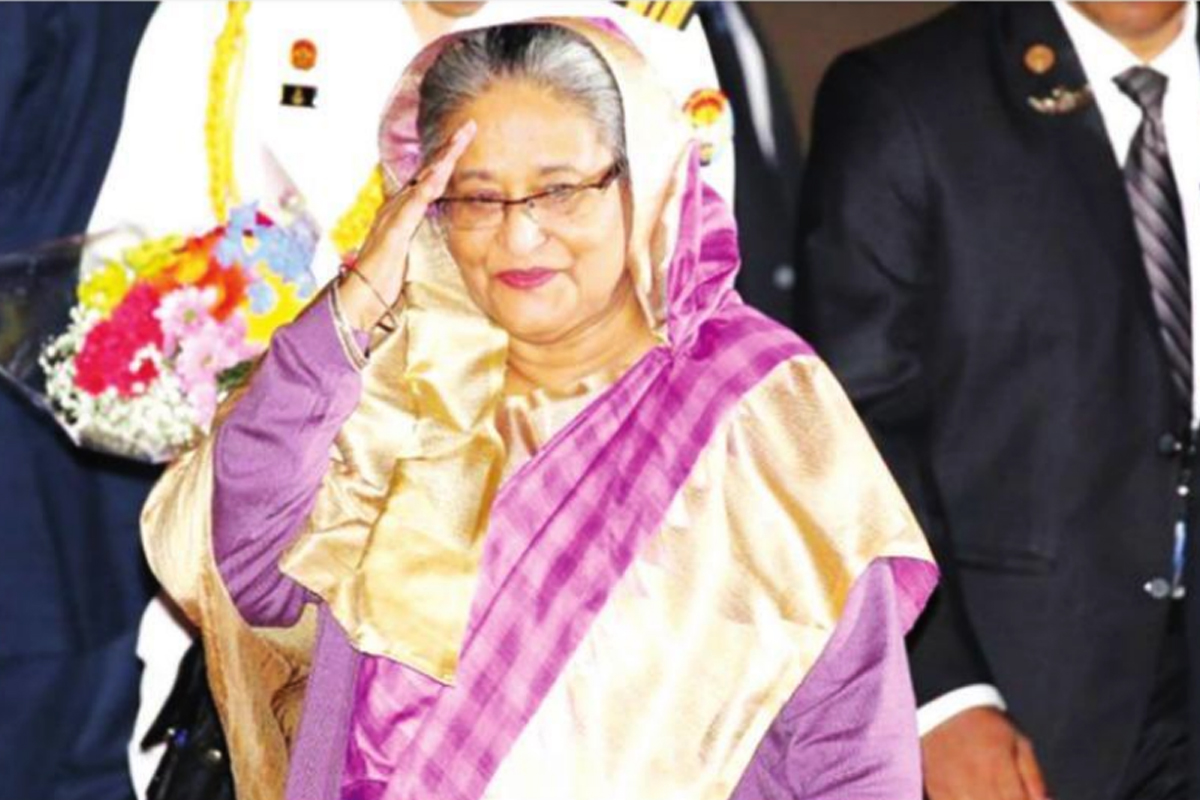There seems to be an uneasy lull in the air of Bangladesh where tranquillity was disturbed by a couple of avoidable unpleasant incidents.
The first happened in the prestigious Bangladesh University of Engineering and Technology ( BUET), when a 22-year-old student Abrar was lynched to death allegedly by the youth wing of the ruling Awami League ( AL). The incident posed a serious threat to the law and order situation in Dhaka as students took to the streets demanding action against those responsible, who were believed to have been under the protection of the party in power. The deceased was suspected to be an activist with pro-Jammat e Islami (JeI) leanings. He was also suspected to be anti-government as he had criticised Prime Minister Sheikh Hasina on Facebook for her perceived failure to extract anything worthwhile from her recent India visit. This led to violent anger and his eventual death.
Advertisement
This unfortunate incident happened soon after Hasina’s return from India. However, the Bangladesh Prime Minister was quick to address the volatile situation and things were brought under control. Yet, there was enough ammunition readily made available to those students who are not pro-AL and perhaps are also not favourable to Bangladesh warming up to India. It is also possible that such a group enjoys the backing of some extraneous forces who bear illwill towards India. This is nothing new in the 48 years of Bangladesh’s history. Had it not been Hasina at the helm, the situation would have gone out of control. Even so, Bangladesh sits on a powder keg.
The second incident threatening peace and communal amity came to light on Sunday, 20 October in the southern district of Bhola, where in Burahuddin, nearly 20,000 Islamic fundamentalists marched through the streets demanding execution of a Hindu, Biplab Chandra Subho on suspicion of blasphemy in a social media post. As the crowd went unruly and started violently attacking the police, the latter resorted to firing. Four protestors died as a result of firing and many were injured, including some critically. Denying allegations of blasphemy, Biplob in his defence stated that his Facebook account has been hacked by fundamentalists and he was being framed to target the minority community.
Interestingly, and coincidentally, the Superintendent of Police ( SP) Bhola, Mohd Qaiser’s Facebook account was also hacked on 22 October suggesting that miscreants, hellbent on embarrassing Hasina and her party, are abusing cyber space to foment communal tension in a predominantly Muslim country. Hefazate-Islam, an advocacy group of madrassah teachers which is seen to be closer to the ruling party, has also reportedly jumped into the cauldron by making inflammatory speeches.
In order to fish in troubled waters, it has called for a meeting of the All Party Muslim United Alliance to announce plans to hold protest demonstrations throughout the city at the next opportunity. Meanwhile, the SP of the district who proved effective in controlling the situation has become a target of the fanatics who have demanded his immediate removal. This demand has been supported by another Islamic body called Tawhadi Janata. Although Prime Minister Hasina has appealed for calm and communal harmony, but the zealots are unlikely to quieten down and will cry about blasphemy to exploit religious sentiments and vitiate the atmosphere. AL party activities are seen trying to appeal for peace but it’s doubtful if they will really be able to do effective fire-fighting in a short time.
Fundamentalists, piqued by the alleged blasphemy, have given a sixpoint charter of demands which includes removal of the SP, burial of those killed in police firing without any post mortem examination, best medical treatment for those injured, adequate compensation to those killed in firing, release of those arrested by authorities and the hanging of Biplob and his associates.
It’s a tough task for the Hasina administration to ensure communal peace. Cases of religious persecution, grabbing of minority property, forced conversions and allegations of sacrilege do surface occasionally but thankfully they are put down. It’s a constant battle against Islamic communalists, active in various parts of the country.
Communal forces in Bangladesh get periodic support from different quarters in terms of funding and ideas to disrupt peace. This runs counter to the prevailing scene in the country. Economic growth is robust, empowerment, literacy and emancipation of women is above par, and secularists and academics on the progressive side are taking Bangladesh to greater heights as envisioned by Hasina. Unless the radical elements are checked, things may regress.
In an unrelated but relevant development, the Border Guard Bangladesh (BGB) killed a BSF jawan last week kicking up a storm with political ramifications. In the past, such aggressive actions of targeting the BSF has provided impetus to those not willing to see India and Bangladesh enoying cordial ties. A section of the BGB is perhaps radicalised as there is a pattern of killing witnessed by the BSF in 2001 and 2005. This could be coincidental and possibly so are the cases of communal strife started in Bhola by fanatics or for that matter the Facebook post by the slain BUET student. All such events go on to show that there is an urgent need on part of the government under Hasina to come down heavily on communal and anti-India forces lest they rob her of her hardearned achievements in ushering in an atmosphere of peace.
(The writer is a retired IPS officer and a security analyst who had served in Bangladesh. The views expressed are personal.)











